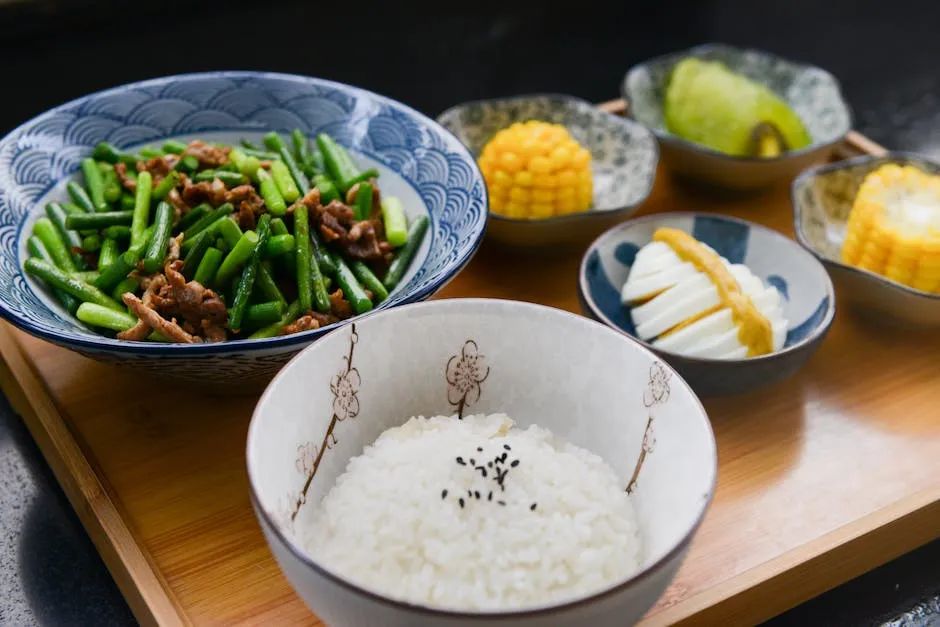Are Staple Foods Nutritious?
Are Staple Foods Nutritious?
Some media outlets and educational institutions today are promoting the idea that staple foods are not nutritious, dismissing them as mere carbohydrates. They claim that eating too many staple foods is equivalent to eating junk food, or even a form of slow suicide. Such views from modern nutrition science have misled many people. Those who structure their diet according to this perspective often find their health deteriorating. Where does the problem lie? This idea is entirely ignorant and absurd. Staple foods are not only nutritious but are actually key to proper nutrition.

The term "nutrition" originally comes from Chinese medical terminology. It has nothing to do with the modern nutrition science concepts of this nutrient or that substance. In Chinese medicine, "nutrition" (营养) refers to "ying qi" (营气). "Ying" signifies the nourishing function of "ying qi," which is essentially blood. The scholarly term for blood is "ying blood" (营血). So how does "ying qi" come about? It is derived from the essence of grains and water. Modern Western nutrition views grains merely as sources of starch and carbohydrates, and then concludes that starch lacks certain nutrients, hence, it is not nutritious. This is highly absurd.
Why do Chinese medicine practitioners consider grains, which are the seeds of plants, to be nutritious? Because only qi (vital energy) can generate more qi. A seed contains the potential to grow into a large tree or plant, indicating that it is filled with abundant life energy. By consuming grains, we digest and absorb their life energy, which in turn boosts our own qi and blood.
If you follow Western nutrition principles, the result will be a deficiency in both qi and blood. If you eat too much cold food and fruit, you'll develop a phlegm-damp constitution. If you consume too much meat, you might end up with coarse body hair, large pores, stomach heat rising (causing bad breath), body odor, acne, and anemia. If you're a woman and you avoid grains for a long time, losing the foundation of acquired energy, you'll suffer from qi and blood deficiency. This could lead to small breasts, facial hair, irregular menstruation, and painful periods. The root cause of painful menstruation is the inability of qi to regulate blood. Without qi and blood, you'll experience pain. Furthermore, when the time comes for you to conceive, you might find it difficult to get pregnant, and even if you do, you're at a higher risk of miscarriage. If you carry the pregnancy to term, you might have insufficient breast milk, and your child might be born prematurely or underweight. All of this stems from not eating rice and other staple foods, leading to a deficiency in qi and blood.
Why, then, do foreigners who eat little rice or staple foods and consume lots of meat seem fine? This is due to differences in lifestyle evolution over thousands of years, resulting in differences in constitution and digestive systems between Chinese and foreigners. The dietary differences between Chinese people and foreigners are as vast as the difference between pandas and polar bears. What would happen if you fed a polar bear bamboo every day? Or fed a panda seals every day? Neither would adapt well. So, don't compare yourself to foreigners who eat meat and drink milk without rice.
But are they really avoiding grains? Actually, it's not that they don't eat grains—they historically lacked the knowledge to cultivate crops. Why didn't they cultivate crops? Because their civilization wasn't as advanced. Herding sheep and cattle was much less labor-intensive; as long as the land grew grass, they were fine. Do you know how bleak the history of European crop cultivation is? Before the Agricultural Revolution in modern Europe, even in England, which represented the highest level of productivity at the time, the yield of wheat was just one pound of harvest per pound of seeds planted. Even primitive slash-and-burn agriculture wasn’t that inefficient. Yes, they really were that primitive. Otherwise, why do you think they relied so heavily on potatoes? Because potatoes are easy to grow. Anyone can dig a hole and plant them.
Europeans historically sourced their food primarily from herding and potato farming. If not for these practices, the Great Irish Famine, which killed millions due to a potato blight, wouldn't have happened. Potato farming was the mainstream agricultural method in modern European history. Did they not know that bread is tastier than potatoes? They did, but they couldn't grow enough wheat. With such low yields, they relied on primitive farming methods. Does anyone still envy the fact that foreigners eat more meat and fewer grains? They avoided grains because they couldn’t cultivate enough of them, not because they didn’t want to eat them.
Do you think their heavy meat consumption is beneficial? Look at how much body hair they have—it's all due to excessive stomach heat from eating too much meat, forcing them to evolve dense hair as a cooling mechanism. Each strand of their wild body hair is like a radiator.
So, stop listening to what foreigners say. We have a Chinese constitution and digestive system, so how can we use Western nutrition, which is tailored to Western constitutions, as our dietary guideline? It's like a panda trying to eat what a polar bear eats.
Finally, let's discuss the best diet for the Chinese constitution and digestive system. The "Huangdi Neijing" says: "Medicines attack diseases, while grains provide nourishment; fruits assist, livestock benefits, and vegetables supplement. Harmonize these flavors to nourish the essence and boost qi."